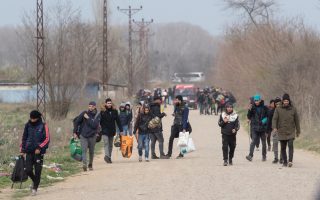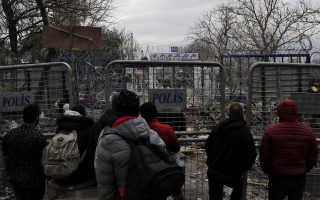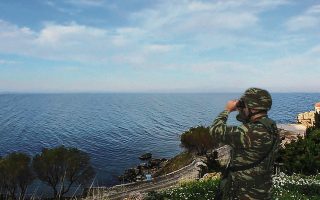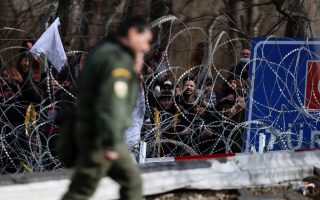Turkey’s track record of weaponising refugees
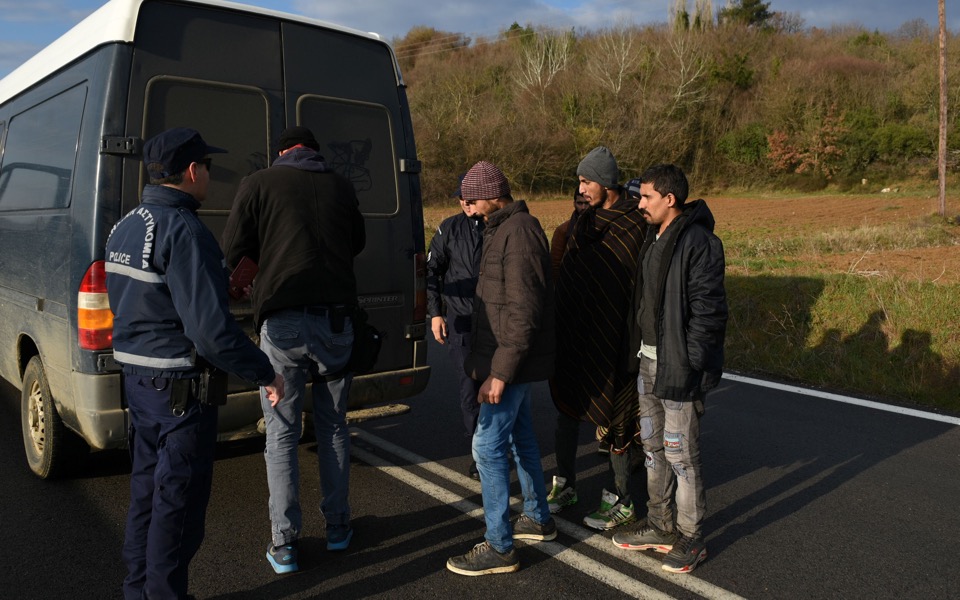
Since the onset of the Syrian refugee crisis, Turkish President Recep Tayyip Erdogan has avoided developing a long-term strategy to help or integrate these refugees in Turkey. Instead, he has used them as bargaining chips with the European Union. In his latest attempt to weaponize these refugees, Erdogan is no longer halting their attempts to reach Europe. But his recent stunt of pushing refugees to the Greek-Turkish border demonstrates his lack of concern for their well-being, and that Ankara under his leadership is not a responsible partner in solving the refugee crisis.
On February 28, Erdogan proclaimed Turkey’s border with Europe “open” and his country’s authorities were told not to hinder any refugees from attempting to cross into the EU. Within 48 hours, nearly 13,000 refugees had arrived at the Greek-Turkish border while hundreds more landed on Greece’s neighboring islands. Turkish police simultaneously deployed to prevent any refugees from returning to Turkey. The situation forced Greece to deploy its military and request additional assistance from Frontex, the EU’s border police. The Turkish government has even gone as far as engaging in a disinformation campaign against the Greek government, claiming that Greece is murdering refugees and comparing the border situation to Auschwitz.
In this instance, Erdogan has opened his country’s border to gain tactical leverage over Europe in negotiations for more aid to compensate for the failure of his Idlib offensive and the influx of refugees it might bring. For Erdogan, weaponizing refugees to obtain international concessions is hardly unprecedented.
Just this past January, Turkey sent its proxy Syrian rebels to Libya to prop up Fayez al-Sarraj’s pro-Ankara Government of National Accord in order to bolster his maritime alliance with the country and counter Greek and Israeli oil exploration in the region.
Earlier, on September 5, 2019, Erdogan announced plans to resettle a million Syrian refugees in a security zone in northern Syria established by an agreement with the US. Nearly two weeks later, the Turkish leader said this planned security zone could absorb 2-3 million Syrians – roughly the equivalent of Turkey’s Syrian refugee population – and that settlement construction was under way. Erdogan’s plan was condemned by the international community and human rights organizations, as Syria is not considered safe enough for refugee repatriation.
Both Erdogan’s AK Party and the Turkish opposition targeted Syrian refugees during the highly contested 2019 municipal elections. The AKP government, faced with Turkish economic recession and an energized opposition in key cities, began to place restrictions on Syrians looking to stay, scapegoating them to cover for Ankara’s domestic failures. Syrian refugees have even been forced to sign off on voluntary returns when attempting to renew their Turkish residency permits over the past year.
As Turkey increasingly turned a blind eye to large numbers of refugees crossing illegally into the EU, it simultaneously negotiated several concessions from Europe to finally start policing its own borders and stem the migrant flow. In what became known as the 2016 EU-Turkey migrant deal, Turkey was given $3 billion in aid, while it was also promised a revival of talks for EU accession and visa-free travel for Turkish nationals to the EU.
The funding for the agreement expired last year and it has set a bad precedent, whereby Turkey can threaten to flood Europe with refugees to blackmail the EU into concessions. It will be worrisome to see what Turkey’s next demands are.
Since the onset of the Syrian civil war in 2011, Turkey has been hosting the largest Syrian refugee population, now estimated at 3.7 million. The country also admitted many Afghans and Iraqis as well. Initially Turkey was seen as a model host, allowing them to live outside of camps and providing them with residency permits, and the ability to work and open businesses. As a result, many put down roots in Turkey and established livelihoods. However, as the Turkish economy waned, local politicians started using refugees as scapegoats for their own economic blunders. They began imposing restrictions on refugees, with Ankara declaring it would not host them indefinitely.
Such tactics only show what these refugees mean to Turkey: a burden they can use in extracting concessions from the EU. There have been a number of policy recommendations on what Turkey could do to better integrate refugees. Admittedly, the EU shoulders part of the blame for Turkey’s abuses. The EU’s fear of refugees, coupled with the lack of internal European solidarity or a long-term plan to deal with the matter, has allowed Erdogan to exploit Europe.
Now, as the 2016 migrant agreement with Turkey expires, the EU should also be tougher with Turkey in any further talks instead of acquiescing to being blackmailed. Turkey’s track record over the past four years toward the refugees is horrendous. Showing any leniency toward its aggressive behavior has only allowed it to further abuse and exploit its refugee population. The next round of negotiations with Turkey must produce more detailed results on how to handle refugees in the long term. It now also must send a message internationally that Turkey is mistreating an extremely vulnerable population and that any aid must be tied to their humane treatment.
Paul Gadalla is a former Beirut-based journalist who also worked in communications at the Carnegie Middle East Center. He has an MA in political science and focuses on the Eastern Mediterranean and religious minorities. He is currently based in Washington, DC. Follow him on Twitter at @BoulosinDC.
